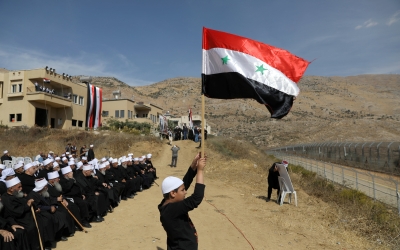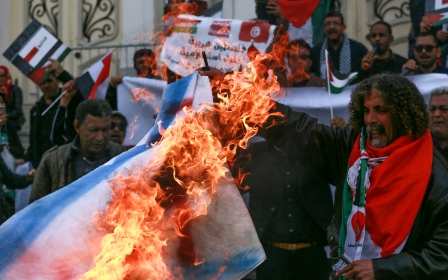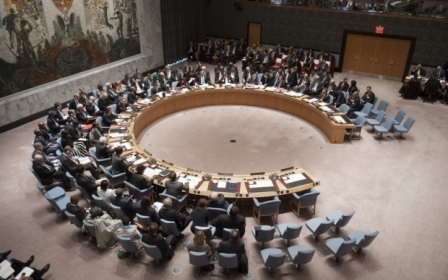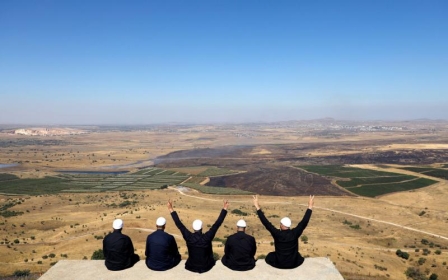Asked about Trump's Golan decision, top US lawmaker cites 'Shia crescent'
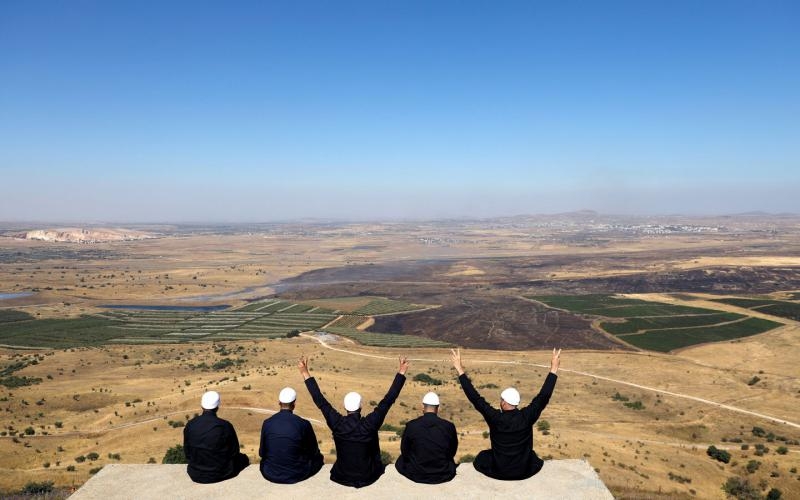
The top Republican lawmaker on the House Foreign Affairs Committee has cited the so-called "Shia crescent" to justify President Donald Trump's decision to recognise Israeli "sovereignty" over Syria's Golan Heights.
Speaking at an event organised by the Wilson Center in Washington, DC, on Monday, Congressman Michael McCaul said Israel is facing increasing threats in the region, including from Shia militias.
"Last time I was over in Israel, Prime Minister [Benjamin] Netanyahu, he talked about what he called a 'Shia crescent,' which is the expansion of Shia militias into Iraq and Syria," McCaul said when asked about Trump's decision on Golan.
The congressman also warned against the growing military power of the Houthi rebels in Yemen and Hezbollah in Lebanon, claiming that the Lebanese group has an arsenal of 150,000 rockets that could overwhelm Israel's anti-missile system, the Iron Dome.
McCaul acknowledged that the rest of the world still does not recognise the Syrian territory as a part of Israel following Trump's decision in late March.
"I'm for a strong Israel," McCaul said. "They're a very strategic ally in the region, surrounded in a pretty bad neighbourhood."
In the past, Iranian officials have accused Washington of exploiting sectarian rivalries to further its influence in the region.
The Golan Heights' Syrian residents are mostly Druze, a mystical monotheistic sect that branched off from mainstream Islam. McCaul did not elaborate on how recognising Israeli sovereignty on an area that it already controls would help push back against Shia militias.
Hours earlier, Israeli President Reuven Rivlin had warned against the establishment of a "Shia axis in Iran, Syria, Lebanon and Yemen".
"The world cannot allow Iran to extend its influence over the region," Rivlin said after meeting with Canadian Prime Minister Justin Trudeau in Ottawa, as reported by the Israeli Government Press Office.
"The only way to halt Iran’s plans is by concerted international pressure and targeted military action whenever needed."
Iran has been deeply involved in the Syrian civil war, where its forces and allied militias have been fighting alongside the Syrian army against rebels and hardline militants, including the Islamic State (IS) group, which had a heavy presence near the Golan until last year.
Israel occupied the Golan Heights in the 1967 war and annexed the territory in 1981 in a move rejected by the international community, including successive US administrations, starting with President Ronald Reagan, a Republican idol who denounced Israel's "unilateral action" at the time.
Still, on Monday, McCaul tried to justify Trump's Golan decision by saying that threats to Israel "are increasing", calling the Syrian territory a "strategic piece of real estate".
Leaders around the world condemned the White House's move last month, saying that it sets a dangerous precedent where countries can acquire other states' territories by force.
Middle East Eye propose une couverture et une analyse indépendantes et incomparables du Moyen-Orient, de l’Afrique du Nord et d’autres régions du monde. Pour en savoir plus sur la reprise de ce contenu et les frais qui s’appliquent, veuillez remplir ce formulaire [en anglais]. Pour en savoir plus sur MEE, cliquez ici [en anglais].


